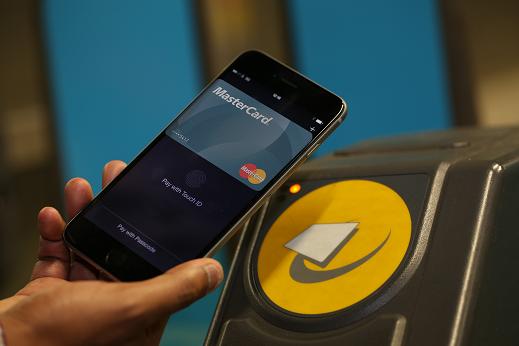Apple is facing legal action alongside Mastercard and Visa over alleged anti-competitive practices regarding their point of sale (POS) payment card network services.
In a class action complaint filed by US beverage business Mirage Wine & Spirits, the company accuses the three firms of deliberately dominating the market to impose inflated fees on merchants.
The action, filed at a district court in Illinois, says that while while Apple had the power to disrupt the dominance of companies like Visa, Mastercard, American Express and Discover in the POS market, instead of competing with them the the tech giant reached agreements with the firms to not use its iPhone to establish an independent POS transaction payment network.
It accuses Apple and the payment processors of protecting themselves from competition by “blocking” third parties from accessing certain hardware in the iPhone which they could have used to establish their own mobile-based payments solutions to compete with the likes of Mastercard and Visa.
Under the agreements, Apple is paid a portion of the fees generated by Mastercard and Visa's POS systems on the value of all US credit and debit transactions initiated with Apple Pay.
"These payments initially amounted to hundreds of millions of dollars each year and are now worth billions of dollars each year," said the class action.
It went on to accuse the two card networks of offering Apple a "very large and ongoing cash bribe".
The complaint claims that these 2014-launched agreements are in violation of US law, and that Apple, Visa, and Mastercard have continued to "take affirmative steps in furtherance of the conspiracy" until as recently as 2020.
Apple later reached similar agreements with market giants American Express and Discover.
FStech has reached out to Apple, Mastercard and Visa for comment.
Latest News
-
Buy Now, Pay Later lenders face FCA oversight from July 2026
-
FCA takes action against HTX for ‘illegal’ financial promotions
-
Aviva Investors explores tokenisation of traditional fund structures
-
Standard Chartered expands institutional access to digital assets through new partnership
-
Amazon rolls out Pay by Bank in UK
-
Complaints to Financial Ombudsman fall to lowest level in two years
Creating value together: Strategic partnerships in the age of GCCs
As Global Capability Centres reshape the financial services landscape, one question stands out: how do leading banks balance in-house innovation with strategic partnerships to drive real transformation?
Data trust in the AI era: Building customer confidence through responsible banking
In the second episode of FStech’s three-part video podcast series sponsored by HCLTech, Sudip Lahiri, Executive Vice President & Head of Financial Services for Europe & UKI at HCLTech examines the critical relationship between data trust, transparency, and responsible AI implementation in financial services.
Banking's GenAI evolution: Beyond the hype, building the future
In the first episode of a three-part video podcast series sponsored by HCLTech, Sudip Lahiri, Executive Vice President & Head of Financial Services for Europe & UKI at HCLTech explores how financial institutions can navigate the transformative potential of Generative AI while building lasting foundations for innovation.
Beyond compliance: Building unshakeable operational resilience in financial services
In today's rapidly evolving financial landscape, operational resilience has become a critical focus for institutions worldwide. As regulatory requirements grow more complex and cyber threats, particularly ransomware, become increasingly sophisticated, financial services providers must adapt and strengthen their defences. The intersection of compliance, technology, and security presents both challenges and opportunities.
© 2019 Perspective Publishing Privacy & Cookies




.jpg)








Recent Stories